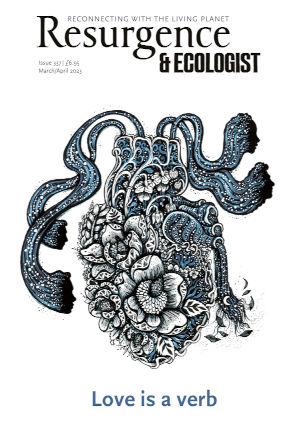Hugh Brody was born in Sheffield in 1943, the youngest son of Jewish parents. His father was an English doctor, and his mother had recently fled Vienna as the Nazis came to power. He spent his childhood collecting birds’ eggs on the suburban edges of the city, while at home his mother absorbed the pain of having lost so many of her family members to the death camps and attempted to manage the trauma of surviving them. She never spoke of it, but such things cannot be so locked away that they do not shape our children. At 18 years old, in a job he hated, in a grief-stricken home, his future seemingly empty of any possibility or hope, Brody attempted suicide.
What led him from this silent home to the furthest reaches of the Arctic is one of the key questions of this book. In 1970, now trained as an anthropologist, he flew to Pond Inlet on the northern edge of Baffin Island and to the start of his lifelong immersion in the lives of hunter-gatherer peoples across the world. He spent the best part of ten years in the high Arctic, became fluent in Inuktitut, and spent months out with Inuit people on their land, travelling and hunting.
Brody’s main Inuktitut teacher, Simon Anaviapik, who described himself as Brody’s ‘adopted father’, once explained why he was taking so much care to instruct him in their ways of being in the world. “They were teaching me Inuktitut, he said,” writes Brody, “because they wanted me to speak for them.”
Brody has spent a lifetime working with people who have been silenced – Indigenous people from the Pacific Northwest Coast to Western India to the southern Kalahari. Through film, testimony, activism and several remarkable books, he has given voice to the resistance and the anguish of those who live at “the colonial frontiers”. Yet it is at these frontiers – which are not frontiers at all for those who live there – that “we can discover what lies at the centre” of our own society. For the corruption, racism, power and abuse that are systemic in the capitalist model are most evident on these fringes, where all pretension is stripped away, and the victims are most vulnerable.
Brody does not mean to suggest that Indigenous people cannot speak for themselves. But the abuses they have suffered, the dispossession of both their lands and their knowledge, have created a deep and devastating emptiness. Too ashamed, too lost, too sad to speak, they have turned inward. Where their children have looked for hope and love, they have been met with grief and silence. This is the thread that binds Brody’s life to those of the hunter-gatherers of the world: his own suicide attempt is resonant with the epidemic of suicide that has swept through young Indigenous people during the last few decades. And it is the possibility of resistance, he comes to realise, of giving voice to trauma, of speaking truth to power, that has driven his work and life.
Yet Brody’s most pressing point is that these silent landscapes have a relevance far beyond those whose ancestors have been psychologically and geographically uprooted. As the Earth’s climate veers out of control, we are all of us contemplating what it means to lose trust in our land and what we think we know about the future. Hunter-gatherers exemplify societies founded upon cooperation and continuity, a refusal of hierarchy, a sense of being grounded in the community and the land. By silencing such people, he writes, we are sacrificing the very embodiment of “alternative forms of the human condition”. And right now, that is something that we have never been more in need of.







